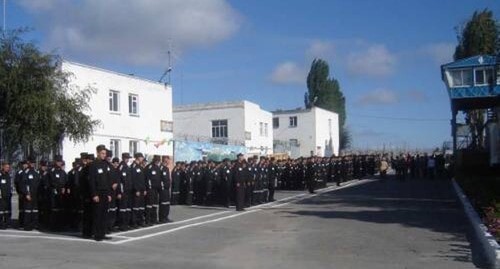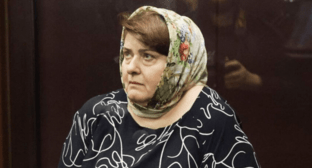
28 August 2024, 23:30
Human rights defenders explain radicalization of prisoners in penal colony in Surovikino
The penal colony No. 19 in Surovikino, where prisoners took warders hostage, is known for its extremely poor conditions of detention and the practice of provocations against Muslims, which could lead to a riot, human rights defender Igor Nagavkin notes. The reason for the incident was the dehumanization of the Federal Penitentiary Service (known as FSIN) system, human rights defender Anna Karetnikova and journalist Vyacheslav Lemkus believe.
The “Caucasian Knot” has reported that on August 23, at the penal colony in Surovikino, four prisoners, natives of Tajikistan and Uzbekistan, declared themselves supporters of the “Islamic State”* and took 12 people hostage. Three employees of the penal colony were killed, and two others later died in the hospital. As a result of the assault, the hostage-takers were killed.
Six months before the terror act, human rights defender Igor Nagavkin sent complaints to the administration of the Federal Penitentiary Service (known as FSIN) Department for the Volgograd Region about the unbearable conditions of detention of prisoners at the penal colony No. 19 in Surovikino, but his appeals remained unanswered.
“I wrote to them about violations of prisoners’ rights and about the disgusting conditions of the prisoners’ detention ... mentioning mold on the walls and non-working ventilation. But the main thing is that in the penal colony ... provocations were organized against prisoners on religious grounds. So, the conflict was brewing there," Igor Nagavkin emphasized.
When Muslims were placed to punishment cells, their Korans and rugs were seized from them. The human rights defender notes that in such stressful situations, “created intentionally,” prisoners can create extremist communities out of protest.
Journalist and historian Vyacheslav Lemkus said that in the early 2000s, he observed a different attitude of the FSIN administration towards prisoners. Vyacheslav Lemkus notes that in 2000s, there was a tendency to humanize the conditions of detention of prisoners in penal colonies. Buildings were renovated, collections of prisoners’ poems were published in penal colonies, and prisoners were given interesting work: for example, they were engaged in making souvenir medieval weapons.
Now, according to the Vyacheslav Lemkus’s report, there is a nationwide dehumanization of the penitentiary system “following the example of the GULAG.”
“We need to move towards humanization of the FSIN system again, otherwise terror acts will start to develop into prisoner riots,” the journalist emphasized.
“It is possible that they – the prisoners who committed the terror act – faced unjust violence, torture, humiliation, discrimination against their religious feelings, the impossibility of performing religious rites, which are quite complex for Muslims,” noted Anna Karetnikova, a former expert of the Federal Penitentiary Service for Moscow and now an employee of the “Support for Political Prisoners. Memorial” human rights project.
*On December 29, 2014, the Supreme Court (SC) of the Russian Federation recognized the organization “Islamic State of Iraq and the Levant” (ISIL or IS) as a terrorist international organization and banned its activities in Russia.
This article was originally published on the Russian page of 24/7 Internet agency ‘Caucasian Knot’ on August 27, 2024 at 01:06 am MSK. To access the full text of the article, click here.
Source: СK correspondent




